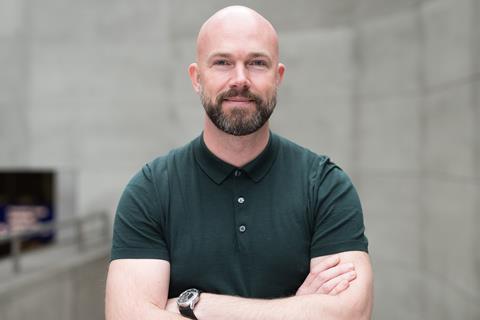
The sheer range and depth of European filmmaking is on display in the nominations for this year’s European Film Awards (EFAs) which take place on Saturday (December 7) in Lucerne, Switzerland.
Jacques Audiard’s Mexico-set Emilia Perez and Pedro Almodovar’s New York-set English-language drama The Room Next Door are the front runners with four nominations each.
Close behind is Mohammad Rasoulof’s Tehran-set, German-French- produced Persian-language film The Seed Of The Sacred Fig with three nominations.
Among the 15 nominees for the best European Film Award are French director Caroline Fargeat’s Los Angeles storyThe Substance starring Demi Moore and Margaret Qualley; acclaimed West Bank documentary No Other Land; Mati Diop’s Berlinale- winner Dahomey, about the repatriation of stolen treasures to Benin; through to Lithuanian director Gints Zilbalodis’ animated adventure Flow.
For European Film Academy CEO Matthijs Wouter Knol, the nominations show “the incredibly diversity in filmmaking in Europe…It’s not like there is a typical European film, there are many different kinds of films here.”
The nominees also see European filmmakers tackling a range of contemporary subjects from body image through to geopolitics, the environment and the legacies of colonialism.
The nominated films qualify for the EFAs because they are made by European directors or produced by European companies. (EFA’s rules say an eligible films’ main production country must be from geographical Europe, both EU and non-EU, plus countries including Israel and Palestine, while individuals nominated must be born in Europe or hold a European passport.)
“They show Europe doesn’t have borders,” says Wouter Knol. “They bring together talent from all over the world telling stories that might be set out of Europe. But there is a narrative, a style of cinematography or a way of acting that very much makes them European films. It shows the liveliness and strength of European cinema despite the challenges that filmmakers face in Europe.”
Reshaping the Academy
Now almost four years into his role, Wouter Knol has taken great strides in reshaping the Academy and its annual awards.
This year’s ceremony will be the last to be held in its traditional mid-December slot. From 2026, the ceremony will move forward a month to January 17, after the Golden Globes and before the close of voting for Oscar nominations. It means the EFAs will sit right in the heart of the awards corridor that culminates in the Oscars, a move that is designed to boost its profile. The later date should also offer a longer window to promote nominated films and for them to be screened by EFA members.
Wouter Knol says the date change should bring greater visibility to European cinema. The EFAs, he argues, should not “shy away” from moving into the middle of the awards corridor. “It’s actually a helpful thing to connect to that…at the end of the day, we’re all trying to keep cinema in a place where people can notice and discover it.”
Meanwhile, the Academy added a record 709 film professionals this year as new members, including actress Cate Blanchett and directors Molly Manning Walker and Matteo Garrone. Membership now stands at around 5,300, up a substantial 32% since 2021. As well as taking applications, EFA has reached out to prospective members too.
Wouter Knol says this is about opening up the Academy. “There’s been a long-standing myth that the European Academy is exclusive and that it is not transparent how you become a member. I wouldn’t say that we have completely taken away that myth, but we’ve done a lot of work in the last years to make it clear that people who want to contribute to a stronger community of European cinema, because they are a part of it, can become members.”

Another change this year is the appointment of French actor Juliette Binoche as the new EFA president. She’s only the Academy’s fourth president since it was founded in 1989, and follows in the footsteps of filmmakers Agnieszka Holland, Wim Wenders and Ingmar Bergman.
Binoche is notable for being the first president to come from France, arguably the powerhouse country of European cinema. As such, she’s an important figurehead who could bring the important French industry closer to EFA, which is based in Berlin and has traditionally had a strong roots in central European countries.
For Wouter Knol, it is more important that Binoche is a European artist who is truly representative of the best of world cinema over recent decades. “Having her at the helm as our president helps to create a sense of what we do, what we stand for and believe in, and how we can bring things to the next level.”
Meanwhile, the rules for this year’s EFA have also changed. Films shortlisted for the best documentary and animation categories now automatically compete for the best European film prize. It means the best European film category now comprises 15 films, up from five last year.
The category looks a bit unwieldy as a result. But Wouter Knol says including animation and documentary “defines cinema in Europe in the most equal and inclusive way…and it fits to the reality in which we live…with such a strong documentary industry and a growing and improving animation film sector in Europe.”
The winners of this year’s EFAs will be unveiled from 8pm CET on Saturday night in Lucerne. It’s a fitting location for this year’s awards which are held every second year in Berlin and travel throughout Europe in the other years. Switzerland, points out Wouter Knol, is in the heart of Europe, even if it is not in the EU. For the attendees flocking to the city from across Europe, Lucerne is a great place to make connections – its size means it is easy to meet people in the street and not just at the ceremony. Switzerland is also a four-language country [French, German, Italian and Romansh], and therefore representative of the multi-language reality of Europe, even though English is the lingua franca.
Says Wouter Knol: “Sometimes, especially in evenings like this where there are a lot of emotions and passion, we should allow people to speak much more in their own language. Hopefully, this year will be one of those.”

























No comments yet